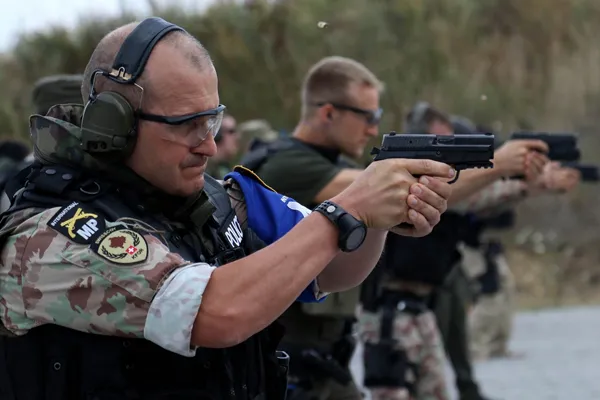Articles & Research

Can Cognitive Training Improve Shoot/Don't-Shoot Performance? Evidence from Live Fire Exercises
Abstract
Police, security, and military personnel have—at most—seconds to make a shoot/don't-shoot decision despite the life-or-death consequences of their actions. Recent research suggests that shoot/don't-shoot errors (e.g., commission errors of shooting at nonhostile or unarmed civilians) can be linked to specific cognitive abilities, and these errors could be reduced through targeted cognitive training. However, these studies were conducted with untrained personnel, conducted with simulated weapons, or conducted with untrained personnel using simulated weapons. Before integrating cognitive training into real-world police and military firearm training, there should be evidence that training benefits also apply to trained shooters using live weapons and live ammunition. Here we assessed differences following cognitive training for trained law enforcement officers who performed pretraining and posttraining shooting tasks with live ammunition and their service-issued weapons. Our findings provide further support that targeted cognitive interventions can significantly improve firearm safety and efficacy for armed professionals.
Journal Information
The American Journal of Psychology (AJP) was founded in 1887 by G. Stanley Hall and was edited in its early years by Titchener, Boring, and Dallenbach. The Journal has published some of the most innovative and formative papers in psychology throughout its history. AJP explores the science of the mind and behavior, publishing reports of original research in experimental psychology, theoretical presentations, combined theoretical and experimental analyses, historical commentaries, and in-depth reviews of significant books.
Vol. 132, No. 2 (Summer 2019), pp. 179-194 (16 pages)
Published By: University of Illinois Press

